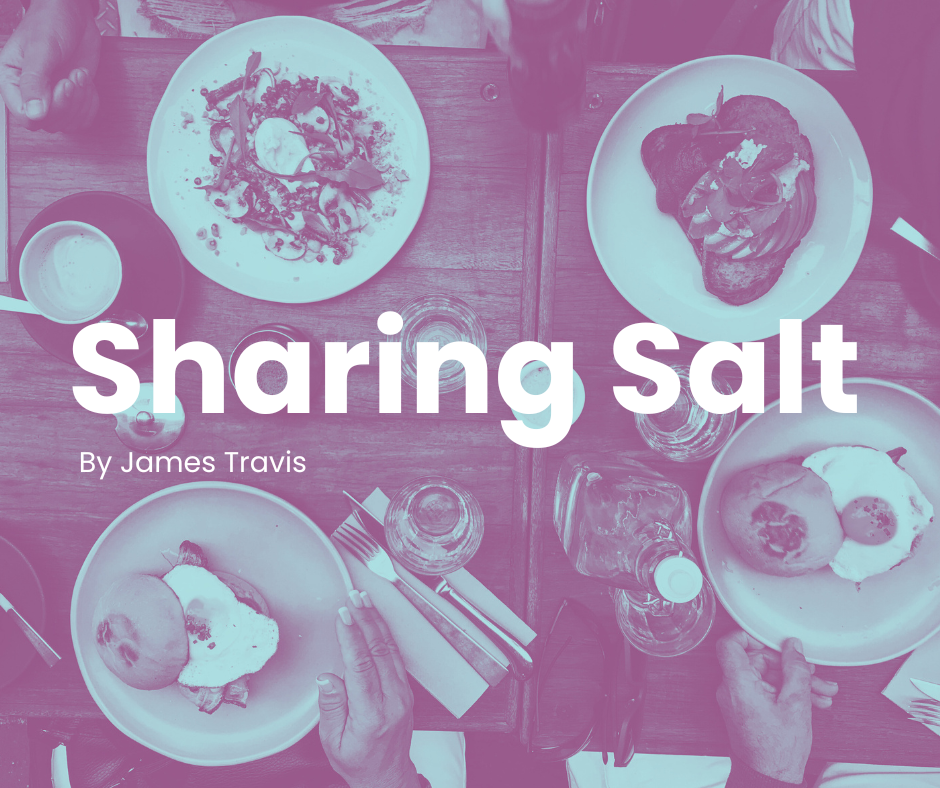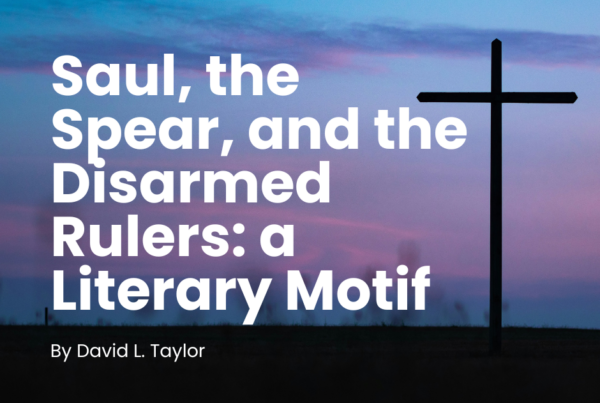
Thinking about some of the deepest and most profound conversations we see in Scripture, I’m struck by how many take place over food and/or drink. John 21.9-14 comes to mind:
“When they got out on the beach, they saw a charcoal fire ready with a fish placed on it, and bread. Jesus said,
“Bring some of the fish you have just now caught.”
So Simon Peter went aboard and pulled the net to shore. It was full of large fish, 153, but although there were so many, the net was not torn.
“Come, have breakfast,” Jesus said.
But none of the disciples dared to ask him, “Who are you?” because they knew it was the Lord. Jesus came and took the bread and gave it to them, and did the same with the fish. This was now the third time Jesus was revealed to the disciples after he was raised from the dead.”
(NET)
Why is the idea of sharing a meal together so important?
In the place and at the time that many of the events in the Bible took place, eating with someone and sharing a meal with someone was considered an indicator of deep fellowship. You didn’t eat with strangers. You didn’t just share your saltwith anyone. This idea of food, fellowship, and relationship came up a few times as I was working through Leviticus in anticipation of our fellowship’s midweek teaching:
“… you must season every one of your grain offerings with salt; you must not allow the salt of the covenant of your God to be missing from your grain offering—on every one of your grain offerings you must present salt.”
(Leviticus 2.13, NET, emphasis added)
David Guzik writes:
“According to ancient custom, a bond of friendship was established through the eating of salt. It was said that once you had eaten a man’s salt, you were his friend for life.”
As we nourish bodies with calorific sustenance, good conversation and discipleship with others sustains and refreshes the soul (Philemon 1.20). As soon as the food comes out, guards and barriers drop, and we are seldom more relaxed and open than at mealtimes.
Believers breaking bread together, whenever and however this might happen, should always be thankful to the Lord for the opportunity. The attitude that is explicitly described at the Last Supper and as a consequence when we take communion—the deepest and most profound meal and connection we share with other believers—is also spoken of almost every time food comes out in Scripture (Luke 22.19-20, 1 Corinthians 11.24, cf. John 6.11).
Very simply, spending time with our believing brothers and sisters to enjoy our common life in the Lord together is a wonderful thing. Breaking bread and sharing meals together is an important part of that. It speaks of relationship, connection, and communion.
On earth as it is in heaven then: our earthly mealtimes are but previews and foreshadows of the heavenly reality of the close fellowship and relationship we will enjoy with one another, and the Lord, into eternity.
As you sit to break bread with others in your family of faith over the coming days, pause and ponder this truth, and enjoy the fellowship and connection even more.









